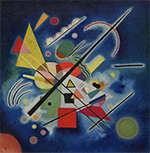
The Spirit of Illusion
“‘If you want me, here I am--LIKE I AM!’” (266).
Flannery O'Connor's "Good Country People" (1955)
Flannery O'Connor's "Good Country People" (1955), 263-84
- this tale opens with a sketch of Mrs. Freeman that emphasizes her intractability (263). Are she and Mrs. Hopewell at all similar, or quite opposite?
- what assumption underlies Mrs. Hopewell’s idealistic talk about the Freemans and other “good country people” (264-65)?
- what do Mrs. Hopewell’s thoughts about her daughter reveal about her own values (266-69)?
- why did Joy change her name to “Hulga,” and why is she uncomfortable when Mrs. Freeman uses it (266-67)?
- why might O’Connor include those cryptic moments when Hulga angrily quotes French philosopher and priest Nicolas Malebranche (268) and when her mother looks at and is befuddled by a passage about science in one of Hulga's philosophy books (268-69)? What does each enigma suggest about Hulga's interests and values?
- why does Hulga comically insert herself into her mom's conversation with Mrs. Freeman (273 bot, 274 mid)?
- what strategies does the Bible salesman effectively employ in his dealings with Mrs. Hopewell (269-72), then later with Hulga (275-81)?
- Hulga seems shame as an meaningless artifact, a product of a less-evolved, past age of human development. What does she hope to do with Manley Pointer's shame (276), and what has she presumably done with her own (281)?
- how does Hulga respond to Manley Pointer's suggestion that she must be brave to live with such an obvious disability, presumably trusting in God to provide for her (277)?
- how experienced is Hulga, romantically speaking, and how does her response to intimate physical contact slowly change (278-82)?
- why does Hulga’s face turn red the first time the Bible salesman says he wants to see where her wooden leg “‘joins on’” (277), and then lose color the second time he makes this request (280-81)? Is either reaction ironic, given her character?
- why might Mr. Pointer ask for an affirmation of affection with such determination (280)?
- what words from Manley deliriously flip everything on its head for Hulga (281), and which of his subsequent actions violently reshape her assumptions yet again (282-83)?
- why might "Manley" collect . . . what he collects?
- does the story as a whole support Hulga’s assumption that she has “true genius,” and the Bible salesman only an “inferior mind” (276 bot)?
- what does our last glimpse of Hulga suggest about her current, internal state of being
- does Hulga's wooden leg serve a symbolic function, or is it merely a practical prosthesis?
Joseph Conrad's Lord Jim (1900), chps. 8-15
- does Nature appear more as a comforting mother in this novel, or a malevolent destroyer?
- is Jim helplessly deceived about his deepest motivations and character, or does he accurately self-assess?
- what do you think? Could the Patna and its passengers have been saved?
- Marlow’s opinion of Jim dips and crests like a ship on turbulent waves, eh? Ultimately, where does Marlow come out—does he think well of Jim, all things considered? Do Jim’s rhetorical questions of Marlow—in which he asks whether Marlow would not have done the same thing as Jim—ultimately convince Marlow of the younger man’s cowardice or his humanity?
- Marlow is no passive observer of Jim’s ordeal, but an active participant deeply affected by his new friend’s struggles. Why is Marlow so interested in Jim? What does Jim represent/symbolize for him?
- what does Jim's tale force Marlow to face? Is it similar to what Captain Brierly recognized, prior to his suicide?
- we discover early on that Jim's father is a parson. Does Conrad appear to follow the trend of many other modernist novels and work to reject traditional religious concepts? Look for allusions to Christianity and Islam, references to God, reflections on the spiritual, etc.
- what idea is the following passage orbiting? “‘If I understand anything of men, the matter was no doubt of the gravest import, one of those trifles that awaken ideas—start into life some thought with which a man unused to such a companionship finds it impossible to live’” (39 mid).
- does Conrad employ the word “soul” to indicate one's innermost self, or an actual, eternal spirit?
- is Conrad’s narrator sympathetic to the faith of the Muslim pilgrims?
- what are the two narrators’ own attitudes towards traditional Christian concepts?
- does this inexplicable force which puts Jim in such a difficult position appear—in the words of the narrator—more as a malevolent god or an impersonal but fatalistic hand of destiny?
- do you agree with Marlow that it is possible to lie unconsciouly (83)?
- does the combination of diametrically opposed attributes contained within Jim's personality seem normal, or do his thoughts and behavior deserve classification under some kind of mental disorder?
- why does Jim characterize himself as isolated in the boat, despite the presence of others?
- at what points does his own tale feel like a comedy of the absurd to Jim?
- does Nature appear more as a comforting mother in this novel, or a malevolent destroyer?
- what narratological purpose is served by Marlow's mentioning his (apparently tangential) conversation with the French lieutenant concerning the Patna (84-93)?
- in the same vein, what purpose is served by Conrad's including that seemingly irrelevant digression about the fate of "poor Bob" who drowned trying to save a girl who would not abandon ship that, when it sank, went down so fast it pulled the two of them with it?

Blue Painting (1943)
Wassily Kandinsky
Dr. Paul Marchbanks
pmarchba@calpoly.edu
![]()
